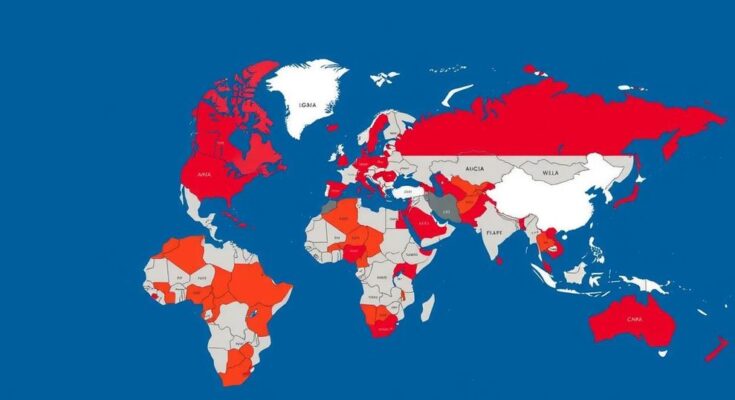Albania’s parliamentary elections on May 11 will allow Albanians overseas to vote for the first time. With major political parties backing this reform, voters can cast ballots electronically or by mail. Amidst political unrest and corruption allegations against the ruling party, the Socialists are currently favored to win according to polls. The U.S. and EU call for resumed dialogue to ensure national stability and integration into the EU.
On May 11, Albania will hold its next parliamentary elections, marking a significant milestone as Albanians residing abroad will have the opportunity to cast their votes from overseas for the first time. This change follows a reform supported by the major political parties in the country, allowing electronic or mail-in voting options for the expatriate population. Notably, while Albania’s current population is estimated at 2.4 million, the potential voter base is approximately 3.6 million, including those living abroad.
The elections will determine 140 legislative seats with a four-year term for the chosen representatives. Amid enduring political turmoil, the opposition has repeatedly accused the ruling Socialist Party, led by Prime Minister Edi Rama, of various forms of corruption and election manipulation. Protests have erupted in response to the arrests of key opposition figures, with calls for a neutral caretaker government before the 2025 elections, a request that has not been accommodated by the ruling party.
Furthermore, discussions between Albania and the European Union regarding the nation’s progress on legal reforms and democratic practices have spurred hopes for EU membership by 2030. However, local polls indicate that the Socialists are favored to win, largely due to the disarray within opposition ranks. Both the United States and the European Union have urged a return to dialogue for the sake of national stability and EU integration, stressing that violence will hinder Albania’s prospects.
The upcoming Albanian parliamentary elections represent a crucial development in the political landscape of the country, especially with the inclusion of expatriates in the voting process. This adjustment reflects a growing recognition of the diaspora’s role in national politics, as their participation could significantly influence electoral outcomes. Furthermore, the ongoing dissatisfaction with the current government and the calls for reform highlight the challenges facing the nation, including the need to address historical anomalies in electoral processes. The engagement of international bodies, such as the EU, underscores the broader context of Albania’s aspirations for European integration and adherence to democratic principles.
In conclusion, the parliamentary elections set for May 11 not only signify a pivotal moment for domestic politics in Albania but also an inclusive step that allows Albanians abroad to partake in the electoral process. While the ruling Socialists appear to maintain an advantageous position amidst a fragmented opposition, the calls for reform and dialogue suggest that the political climate remains contentious. The outcome of these elections may have lasting implications on Albania’s future, especially concerning its EU aspirations.
Original Source: abcnews.go.com




